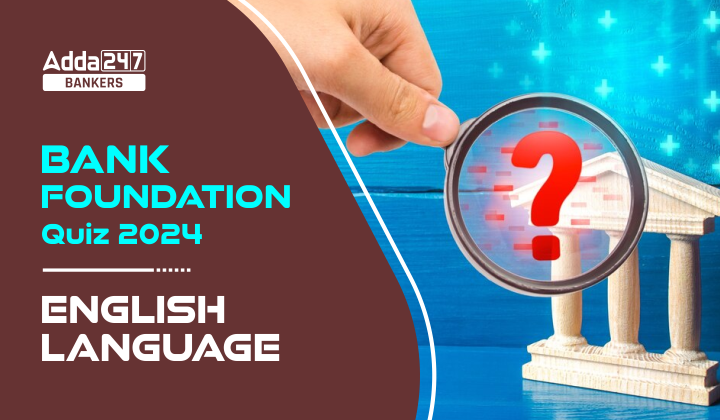Directions (1-5): In the following passage there are blanks, each of which has been numbered. These numbers are printed below the passage and against each, five words are suggested, one of which fits the blank appropriately. Find out the appropriate word that fits the blank.
On February 1 at 11 am, the Finance Minister will set the _____(1)________ for the temporary financial plan until the new government takes over. This will be the sixth budget presentation put _____(2)________ by the finance minister including five annual and one interim. _____(3)________ on the initiative announced in 2022, a strategy will be _____(4)________ for achieving self-reliance in oilseeds, such as mustard, groundnut, soya bean, sesame and sunflower. This will cover research in high-yielding varieties, _____(5)________ of modern farming techniques, market linkages, procurement, value addition and crop insurance
Q1.
(a) halt
(b) conceal
(c) shield
(d) cloak
(e) stage
Q2.
(a) back
(b) out
(c) up
(d) forth
(e) into
Q3.
(a) absorbing
(b) saturating
(c) building
(d) rotating
(e) dwindling
Q4.
(a) tangled
(b) created
(c) smashed
(d) applied
(e) formulated
Q5.
(a) retention
(b) abstraction
(c) probation
(d) deduction
(e) adoption
Solutions:
S1. Ans. (e)
Sol. The phrase “set the _____ for the temporary financial plan” suggests introducing or presenting something. Among the options, “stage” (e) is the best fit because it means setting up or laying the groundwork for something, which aligns with the context of preparing for a financial plan.
(a) halt: to stop; bring to a standstill
(b) conceal: to hide; keep from sight
(c) shield: to protect; defend
(d) cloak: to cover or hide something
(e) stage: to present or organize an event or performance
S2. Ans. (d)
Sol. The phrase “put _____ by the finance minister” refers to presenting or introducing something, especially in the context of budget presentations. “Forth” (d) is the correct choice here, as “put forth” means to present or propose for consideration.
(a) back: in the direction of the past or original position
(b) out: away from the inside or center
(c) up: towards a higher position; at a higher level
(d) forth: out or away from a place or point of action
(e) into: to the inside or interior of
S3. Ans. (c)
Sol. The third blank is in the context of continuing or expanding on an initiative. “Building” (c) fits best because it means to develop or expand, which aligns with the idea of continuing an initiative announced previously.
(a) absorbing: intensely engaging or interesting
(b) saturating: to fill or supply beyond capacity; to imbue thoroughly
(c) building: to construct by assembling and joining parts or materials
(d) rotating: to turn or cause to turn around an axis or center
(e) dwindling: to become gradually less until little remains
S4. Ans. (e)
Sol. The phrase “a strategy will be _____ for achieving self-reliance” implies creating or developing a plan. “Formulated” (e) is the most appropriate word here, as it means to create or devise methodically, fitting the context of developing a strategy.
(a) tangled: twisted together; entangled
(b) created: brought into existence
(c) smashed: to break violently into pieces; shatter
(d) applied: to put to use, especially for a particular purpose
(e) formulated: to devise or develop as a method, strategy, or system
S5. Ans. (e)
Sol. This blank is about actions to be taken concerning high-yielding varieties and modern farming techniques. “Adoption” (e) is the correct word because it refers to the act of beginning to use something new or applying new methods, which is consistent with the context of implementing modern farming techniques.
(a) retention: the act of keeping something in one’s possession; continued possession, use, or control
(b) abstraction: the process of considering something independently of its associations, attributes, or concrete accompaniments
(c) probation: a period of testing or trial, often used to describe a period of testing someone’s ability, character, etc., especially in their work
(d) deduction: the act of subtracting or taking away a part; also, reasoning from the general to the specific
(e) adoption: the act of taking up or starting to use or follow; the acceptance of a plan or idea





 English Language Quiz For Bank Foundatio...
English Language Quiz For Bank Foundatio...
 English Language Quiz For Bank Mains Exa...
English Language Quiz For Bank Mains Exa...




